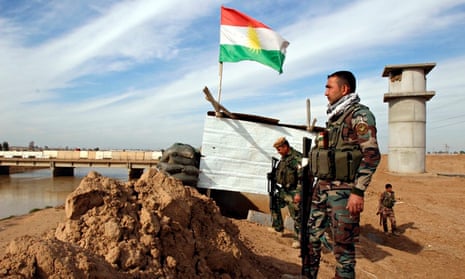Unrest in Ukraine and the Middle East has catapulted conflict between states to the top of the list of risks to the stability of the world in the next decade, according to experts polled by the World Economic Forum.
Ahead of the WEF’s annual meeting in Davos next week, the organisation’s Global Risks 2015 report found that geo-politics has replaced income inequality as the leading concern.
The widening gap between rich and poor failed to make the top five risks after three years in which it has been seen as the leading threat to stability.
Six years after the depths of the worst recession suffered by the global economy since the 1930s, the WEF said replies to its survey showed that geopolitics was now a bigger worry.
“Twenty-five years after the fall of the Berlin Wall, the world again faces the risk of major conflict between states,” said Margareta Drzeniek-Hanouz, lead economist, World Economic Forum. “However, today the means to wage such conflict, whether through cyberattack, competition for resources or sanctions and other economic tools, is broader than ever. Addressing all these possible triggers and seeking to return the world to a path of partnership, rather than competition, should be a priority for leaders as we enter 2015.”
After a year dominated by the tension between Ukraine and Russia and the rise of Islamic State (Isis) in Iraq, the leading risk identified by the 900 WEF experts was interstate conflict with regional consequences.
It was followed in the top five by extreme weather events, failure of national governance, state collapse or crisis, and high structural unemployment or underemployment.
When asked which of 28 risks would have the biggest global impact, the experts identified a water crisis. The battle against Ebola in West Africa meant the rapid and massive spread of infectious disease was in second place, followed by the threat posed by weapons of mass destruction, interstate conflict with regional consequences and failure to adapt to climate change.
The WEF said it was “noteworthy” that environmental risks had supplanted economic anxieties. “This comes as a result of a marked increase in experts’ negative assessment of existing preparations to cope with challenges such as extreme weather and climate change, rather than owing to a diminution of fears over chronic economic risks such as unemployment and underemployment or fiscal crises, which have remained relatively stable from 2014,” the report said.
Axel Lehmann, chief risk officer at Zurich Insurance Group, said: “Without doubt, urbanization has increased social well-being. But when cities develop too rapidly, their vulnerability increases: pandemics; breakdowns of or attacks on power, water or transport systems; and the effects of climate change are all major threats.”






